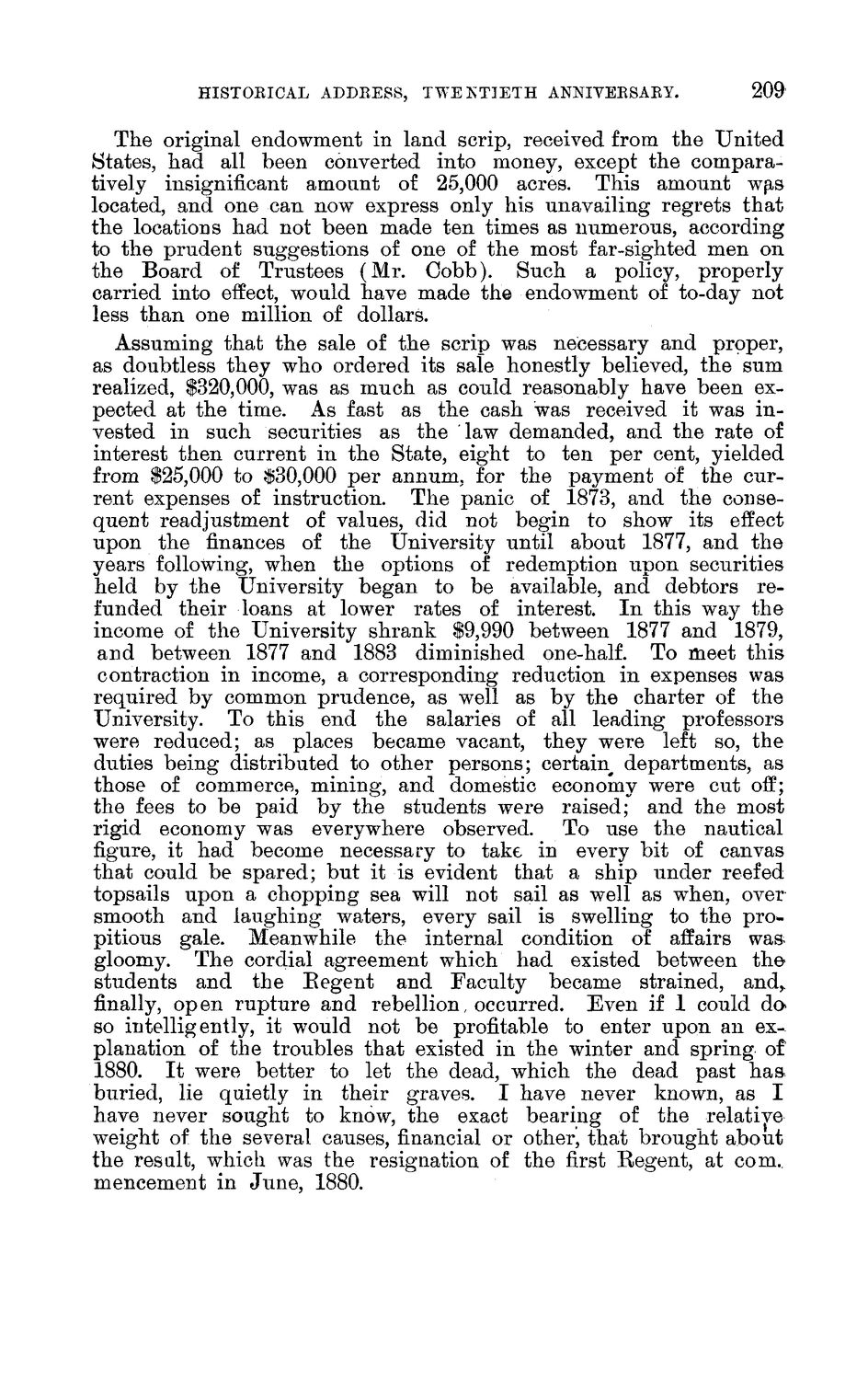| |
| |
Caption: Board of Trustees Minutes - 1888
This is a reduced-resolution page image for fast online browsing.

EXTRACTED TEXT FROM PAGE:
HISTOEICAL ADDEESS, TWENTIETH ANNIVEESAEY. 209 The original endowment in land scrip, received from the United States, had all been converted into money, except the comparatively insignificant amount of 25,000 acres. This amount was located, and one can now express only his unavailing regrets that the locations had not been made ten times as numerous, according to the prudent suggestions of one of the most far-sighted men on the Board of Trustees (Mr. Cobb). Such a policy, properly carried into effect, would have made the endowment of to-day not less than one million of dollars. Assuming that the sale of the scrip was necessary and proper, as doubtless they who ordered its sale honestly believed, the sum realized, $320,000, was as much as could reasonably have been expected at the time. As fast as the cash was received it was invested in such securities as the law demanded, and the rate of interest then current in the State, eight to ten per cent, yielded from $25,000 to $30,000 per annum, for the payment of the current expenses of instruction. The panic of 1873, and the consequent readjustment of values, did not begin to show its effect upon the finances of the University until about 1877, and the years following, when the options of redemption upon securities held by the University began to be available, and debtors refunded their loans at lower rates of interest. I n this way the income of the University shrank $9,990 between 1877 and 1879, and between 1877 and 1883 diminished one-half. To meet this contraction in income, a corresponding reduction in expenses was required by common prudence, as well as by the charter of the University. To this end the salaries of all leading professors were reduced; as places became vacant, they were left so, the duties being distributed to other persons; certain, departments, as those of commerce, mining, and domestic economy were cut off; the fees to be paid by the students were raised; and the most rigid economy was everywhere observed. To use the nautical figure, it had become necessary to take in every bit of canvas that could be spared; but it is evident that a ship under reefed topsails upon a chopping sea will not sail as well as when, over smooth and laughing waters, every sail is swelling to the propitious gale. Meanwhile the internal condition of affairs was> gloomy. The cordial agreement which had existed between the students and the Eegent and Faculty became strained, and,, finally, open rupture and rebellion, occurred. Even if 1 could da so intelligently, it would not be profitable to enter upon an explanation of the troubles that existed in the winter and spring of 1880. I t were better to let the dead, which the dead past has, buried, lie quietly in their graves. I have never known, as I have never sought to know, the exact bearing of the relative weight of the several causes, financial or other, that brought about the res alt, which was the resignation of the first Regent, at com. mencement in June, 1880.
| |